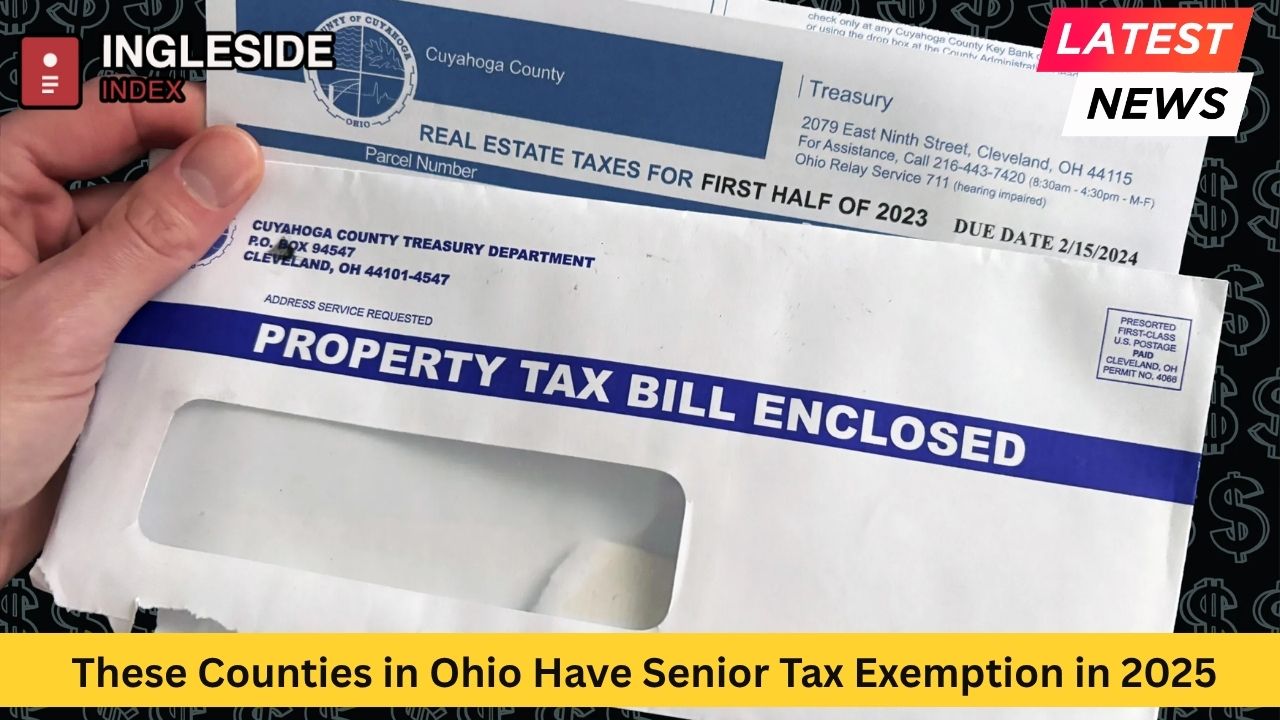Florida is a national magnet for retirees, consistently drawing seniors from all corners of the country with its year-round sunshine, warm beaches, and famously tax-friendly policies. Among the many fiscal advantages for older Floridians, extra standard deductions and tax exemptions stand out, providing a financial buffer exactly when it’s needed most. This guide explains the latest rules, unique city trends, vital statistics, and essential steps for seniors over 65 seeking to maximize these valuable benefits.
The Landscape of Seniors in Florida
Florida’s population is one of the oldest in the nation—over 21% of residents are aged 65 and older. Cities such as Miami, Tampa, St. Petersburg, Cape Coral, and Clearwater have significant and rapidly growing senior communities. For example, Cape Coral now boasts a 65+ population of more than 25%, while Miami recently surpassed 1.2 million residents aged 65 and above. Tampa-St. Petersburg-Clearwater includes nearly 690,000 seniors and saw a surge of 9.5% in just the last few years. This demographic reality shapes Florida’s approach to taxes, benefits, and senior support services.
What Is the Extra Standard Deduction for Seniors?
The federal and state tax systems both recognize the increased needs and sometimes fixed incomes of seniors. An extra standard deduction is an additional amount that seniors can subtract from their income before calculating their tax bill. This lowers taxable income, potentially reducing tax owed and sometimes resulting in a larger tax refund.
In 2025, major federal changes have expanded opportunities for seniors. Under new federal rules, individuals aged 65 or older can claim a unique additional deduction, stacked on top of the existing senior deduction, regardless of whether they itemize or claim the standard deduction.
2025 Deduction Amounts
-
Seniors age 65 and older qualify for an extra $6,000 deduction per person.
-
Married couples where both are 65+ can claim a total of $12,000.
-
This $6,000 deduction is in addition to the prior extra standard deduction for seniors, which is currently $2,000 for single filers or $1,600 for each spouse when married and filing jointly.
-
The total potential deduction can exceed $8,000 for a single senior or $15,000 for qualifying couples.
Eligibility Criteria
-
Must be 65 years old by December 31 of the tax year.
-
Available to both standard deduction and itemizing taxpayers.
-
Married couples must file jointly to claim the full amount.
-
Social Security numbers for both spouses are required.
-
The deduction phases out for higher earners: reductions begin at $75,000 of Modified Adjusted Gross Income (MAGI) for singles or $150,000 for joint filers, disappearing completely at $175,000 and $250,000 MAGI, respectively.
Florida State Tax Environment: Why Seniors Love the Sunshine State
Florida is known as an income-tax-free state, one of only a handful that does not tax wage or retirement income. This includes:
-
No tax on Social Security benefits.
-
No tax on pension income.
-
No state inheritance or estate taxes.
As a result, older adults living in cities from Orlando to West Palm Beach and Naples keep more of their retirement savings than in most states.
Property Tax Exemptions: A Major Local Benefit
For homeowners aged 65 and older, Florida offers extra property tax relief beyond federal deductions. The standard Homestead Exemption reduces the taxable value of a primary residence by up to $50,000 for all eligible homeowners. For those 65 and over, an additional homestead exemption of up to $50,000 is available, subject to household income limits that are adjusted annually.
How City and County Programs Differ
-
Miami-Dade and Monroe Counties have generous supplemental exemptions, sometimes topping $50,000, for seniors who meet income caps.
-
In Tampa, qualified residents also access a $50,000 exemption, while Temple Terrace offers an additional $25,000.
-
Property in cities like Clearwater, Fort Lauderdale, and Jacksonville may qualify for local senior relief programs—check with your county property appraiser for updated local limits.
Additional programs exist for long-term homeowners:
-
Those who have lived in their home for 25+ years with a property taxable value under $250,000 can sometimes exempt the entire value from taxes, provided annual income does not exceed a set threshold.
Key Application Steps for Extra Deduction and Exemptions
Claiming both extra standard deductions and property tax exemptions involves careful paperwork and clarity regarding eligibility:
For the Extra Standard Deduction on Taxes
-
Verify your age as of December 31 for the tax year in question.
-
Gather Social Security Numbers for both spouses (if applicable).
-
Verify that your income falls below the reduction threshold if you hope to access the full deduction.
-
When filing, check the dedicated box and include age details to activate the extra deduction in your return software or with your tax professional.
-
If married, file jointly to maximize the deduction.
For Senior Property Tax Exemptions
-
Prove permanent Florida residency by January 1 of the application year.
-
Complete applications (such as DR-501 or DR-501SC) and submit them by March 1 to your county’s property appraiser’s office.
-
Gather documentation: Proof of age, Social Security statements, federal income tax returns, and official Florida residency evidence (such as a driver license or utility bill).
-
Keep annual income within specified income limits (for 2025, this is set at $37,694).
-
Renew annually to avoid penalties or back taxes if qualification status changes.
How Florida Stands Out Among the States
Florida’s approach to senior taxes is consistently regarded as among the best in the country. The lack of an income tax is especially appealing, but the layered property tax exemptions and frequent senior-friendly city initiatives give Florida a competitive edge for older adults looking to stretch their retirement dollars.
Compared to states like Maine or Vermont—which have higher senior population percentages but also higher state taxes—Florida delivers both financial savings and a vibrant, supportive environment for seniors.
Real-Life Examples from Florida’s Cities
Miami
Miami has seen a 7.5% increase in its senior population since 2020, now home to over 1.22 million residents aged 65 and older. Miami-Dade seniors, especially those with low-to-moderate incomes, commonly qualify for both the extra standard deduction and the generous county-specific property tax exemptions.
Tampa Bay
Tampa’s 65+ boomer population has grown by nearly 10% over just three years, with the wider metro region now harboring nearly 690,000 older residents. Tampa’s city government is proactive about ensuring seniors get their exemption paperwork in order each spring.
Cape Coral and Clearwater
Cape Coral boasts one of the fastest-growing populations of older adults in the state—25% of its residents are seniors. In Clearwater, the share stands at 23%, and city officials collaborate with local media and nonprofits to promote awareness about annual tax exemption applications.
Jacksonville & Tallahassee
Both cities offer unique outreach programs through their property appraiser’s offices to help seniors navigate the application process for local benefits, with tailored support available for limited-English speakers and residents who may have mobility challenges.
Florida’s Senior Community Support Goes Beyond Taxes
Florida invests more per adult aged 60 and over on community support services than the national average, ensuring seniors remain active and healthy. This includes extensive meal delivery programs, senior centers, affordable housing initiatives, and transport services. These investments help keep aging Floridians independent and connected.
Important Considerations: Getting the Most from Your Deductions
-
Always check the most current income thresholds and exemption amounts—they change yearly, often adjusting with inflation.
-
Some local governments may offer additional, city-specific exemptions for seniors, disabled veterans, or long-term residents. Be sure to check with your local property appraiser.
-
Non-citizen seniors and recent migrants may have different eligibility rules—contact your local authorities for personalized guidance.
-
Many counties provide online filing portals, but in-person help is available for those needing assistance.
Steps for Planning and Maximizing Your Benefits
-
Consult a Tax Preparer: Rules can be complex and change often—a qualified CPA or tax attorney can ensure you don’t miss a deduction or exemption.
-
Apply Early: Filing deadlines are firm; missing them can mean missing out on hundreds or thousands in tax savings.
-
Renew Annually: Keep documentation up to date and renew exemptions each year.
-
Promote Awareness: Let neighbors, friends, or relatives know about these benefits. Many eligible seniors leave money on the table due to lack of information or confusion about the process.
Looking Ahead: A Senior-Friendly Future
With the senior segment of its population projected to keep climbing, especially in retirement hubs like Port St. Lucie, Naples, and Sarasota, Florida is likely to continue introducing even more robust programs and protections for its older residents.
Tax relief remains one of Florida’s strongest calling cards for older adults—the combination of zero state income tax, generous standard and extra deductions, and layered property exemptions outpaces almost any other state, especially for seniors living on fixed incomes. By understanding and acting on these benefits, Floridians over 65 can enjoy their golden years with less worry and greater economic peace of mind.
Conclusion
For seniors living in or moving to Florida—from bustling Miami and Tampa to serene Sarasota or Cape Coral—understanding the state’s extra standard deduction and property exemptions is essential. With careful planning, timely application, and the help of local advisors, seniors can protect their income, lower their property tax bills, and make the most of all the benefits America’s most senior-friendly state has to offer.













Leave a Reply